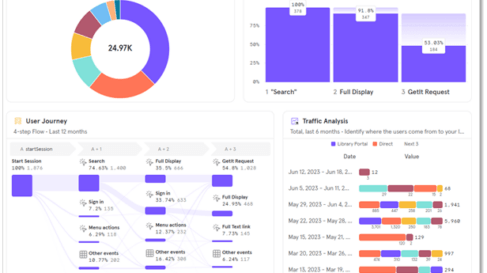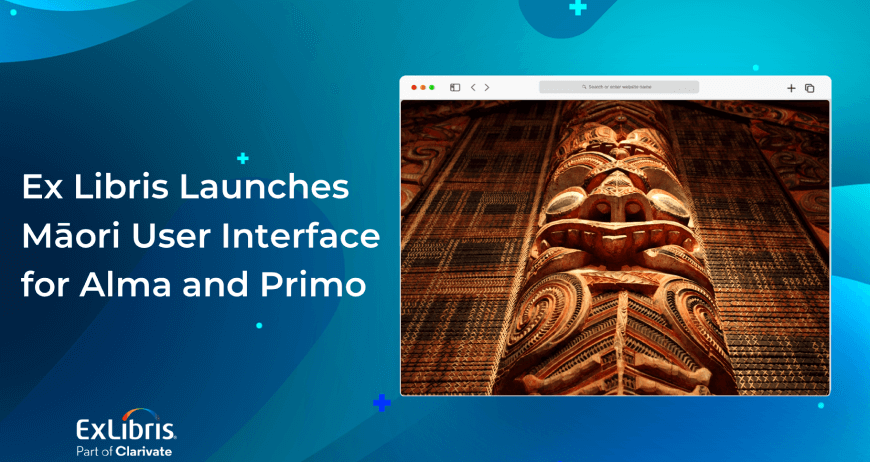When I search for literature references, I usually start with some known keywords and then I learn further keywords while looking at my search results and one leads to the other. With a bit of luck I end up with a comprehensive list of all the available items that are meaningful for my question. Discovery has many factors, including ranking of the results, but there is one factor that is especially difficult to plan for and this is serendipity. By definition, serendipity is a lucky chance finding or, according to Wikipedia, a “happy accident”. When conducting a search, my results rely heavily on my own knowledge of keywords and my ability to extract new ones from my results. But in addition, I need a sort of rational serendipity to help me with my lucky finds.
I recently read a very interesting article about the nature and importance of serendipity in discovery – “Discovery is Never by Chance: Designing for (Un)Serendipity” by Paul André, Jaime Teevan and Susan Dumais. Serendipity is a complex field but there are measures that we can take to enhance its usefulness and rationality. The article states in its conclusion that we can enhance the likelihood for serendipity and insight “through surfacing connections, play, enhancing domain expertise, and mechanisms to share discoveries.”
Coming back to our information discovery process—this is where I find bX to be a crucial part. First of all the Recommender adds suggestions for articles to those I find myself. The articles can have different keywords, different journals, and different authors from the items I found originally. In essence, I find articles that do not only rely on my ability to think of all the right keywords, but—because it harnesses usage data from a large number of researchers—bX is also using ideas generated by other users, who had similar research questions. That adds not only a mechanism to share knowledge, but exposes connections that I would not have found myself so easily – really lucky findings.
The bX Hot Articles service, in parallel, tells me what topics and articles are currently most viewed in my subject; thereby creating further ideas and inspiration. For example, I searched for twitter in libraries. I wanted to know how Twitter is playing a role and which different aspects of it are being considered. I found some relevant articles in my result list, but actually, the articles I found via the Recommender and Hot Articles were even more useful. They widened my research scope to social computing in general and added some really interesting articles. I would probably have searched myself for the keywords social computing at some point; but here, I found relevant articles immediately, without refining my search. I may do further searches, but in the meantime I’ve already found what I’m looking for and that saved me considerable time. In addition, the other listed articles in Hot Articles made me curious, so I might look again with a fresh idea for further reading. The experience is inspirational and provides me with a path to learn and expand my knowledge.
Maybe this is not the usual path of an undergraduate student, who is not looking for inspiration but rather for a quick fix for an assignment, but bX does provide this, too. Discovery without any function for providing rational serendipity is merely searching—and hoping that I came up with the right keywords.
You might also be interested in

Alma
Content
Primo
Artificial Intelligence
December 18, 2024 |
4 min read
Artificial Intelligence Blog Series: Harnessing Academic AI – Insights from Clarivate

Alma
Leganto
Primo
Artificial Intelligence
October 26, 2024 |
3 min read
Artificial Intelligence Blog Series: Meet Knowledge Assistant, Your Guide to the Ex Libris Knowledge Center

Primo
Artificial Intelligence
Higher Education
Research
September 23, 2024 |
4 min read
Elevate User Engagement with Advanced Analytics: Ex Libris Primo Partners with Mixpanel
Great library experiences start with software
Download whitepaper

Primo
Artificial Intelligence
Higher Education
Research
June 19, 2024 |
4 min read
Artificial Intelligence Blog Series: Meet Primo Research Assistant

Primo
January 30, 2024 |
3 min read
Revolutionizing Library Discovery: The Journey to a New UX for Primo Discovery

Primo
Artificial Intelligence
November 23, 2023 |
4 min read
Artificial Intelligence Blog Series: Prioritizing Conversational Discovery at Ex Libris

Alma
Leganto
Primo
Rapido
October 29, 2023 |
4 min read
Why academic libraries are modernizing the user experience

Alma
Primo
July 28, 2022 |
3 min read
Ex Libris Launches Māori User Interface for Alma and Primo

